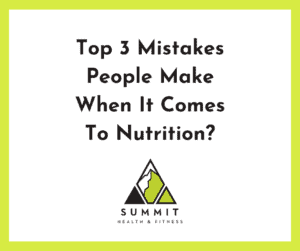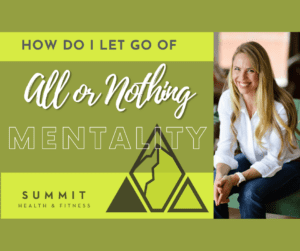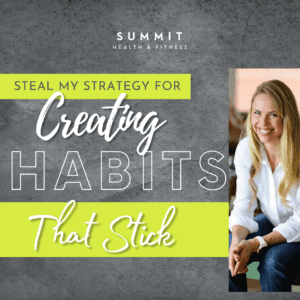
How to talk with your Friends and Family when you are making changes?
Change is HARD and oftentimes uncomfortable. It can be even more uncomfortable when others around you are unsupportive or indifferent.
Thank you so much to our FB group members and the feedback they provided.
Some of the main pitfalls that our Summit FB group followers had questions about are:
What if your family is not happy that junk food is no longer around?
What if your new healthy choices impact social time?
- Choosing an early bedtime over Netflix.
- No longer snacking during the Big game.
- Turning down Happy Hour
What if your family doesn’t feel like you need to change or don’t understand why you are seeking change?
What if your friends make jokes about what you can and can’t eat or mock you when you order a salad or water? The “oh so your on a diet comments”
10 ways to approach these important conversations?
#1 – Do it with CONFIDENCE. It sounds silly but if you are attempting to make changes it is important that you demonstrate confidence in your goals. This will tell the person questioning your motives that this is a non-negotiable change. It will also build your self confidence when approaching the task. FAKE it until you make it, is 100% acceptable!!
Have 100% certainty about what you are doing. If you laugh and make jokes about what you are doing the people around you may accept that as ok and you may be offended or hurt later when they make the same jokes.
#2 – Don’t Feel Guilty! – Even if you are the only person in the family or in your friend group making changes that’s ok! Your commitment to your health goals will influence the people around you.
#3- Don’t keep it a secret! There is no reason to feel shame about wanting to improve yourself. Have an open conversation with those around you. Explain your reason for wanting to change. Maybe show them your plan. Afraid you can’t find the words or that the person you’re telling will interrupt you with a rebuttal. Write them a letter or email. Include your feelings. This may not be comfortable but we don’t always know for sure how someone is going to react. The person you share this with could become one of your biggest supporters. Start with someone you trust.
#4- Don’t get discouraged- stick with your plan. Your friends and family are more likely to buy in and know you are serious when you stick with your new habits. One Summit Health client reported that after sticking with her new habits now friends and family come to her for advice and to share their wins. Imagine how powerful it would feel to be a catalyst of change just by taking care of yourself. Circles back to not feeling guilty RIGHT?
#5- Do Start Small! – We talk about this all the time. Small daily habits are far more likely to create change than a complete overhaul. Not only will this help you to succeed and this will also be less uncomfortable for those around you.
#6- Ask if they want to join you for a week. – Fewer than 1 in 4 Americans get enough exercise, more than half of adults don’t drink enough water, about 1 in 10 adults eat enough fruits and vegetables. Trust me there’s room for everybody to make healthy changes.
#7- Ask for what you want and need. – Some people may not know or understand how to make you feel supported. This could be asking your friends and family to be honest with you, not to lecture nag or criticize, not to monitor your food or exclude you from activities. Ask them to support you, love you and be patient with you.
#8- Consider your own feelings – Are those around you really not being supportive or is it possible that you are feeling vulnerable because you are in unknown territory when making a change.
#9- Be Flexible – Ask yourself is it realistic to never allow indulgences like enjoying a snack during the big game or staying up late to watch Netflix. Can you keep a few fun foods in the house that you enjoy in moderation? Can you make your family spaghetti noodles when you are choosing to make a swap to add more veggies?
#10- LOVE THEM TOO- Continue to love and accept your friends and family even when they make you feel unsupported. Allow time for those around you to come around. Here’s Why!
Sometimes when people respond negatively to change, it’s because of their own insecurities and self-doubt with their own abilities to change. (Fear of Failure)
Also be sure to consider whether or not those around you have the capacity to offer you support.
One final thought here is to DO YOUR BEST to provide encouragement to others when you see the opportunity. The world needs more people lifting one another up. BONUS studies show that the reward centers in the human brain light up when showing others love and kindness.
How to find support?
- Join a supportive group. Fitness or nutrition group.
- Connect with someone that has successfully lost weight, gotten in shape or accomplished the goal you wish to achieve. Ask them if they had similar experiences.
- Read books or listen to podcasts that cover content that aligns with your goals.
- Join a gym, fitness group or running club if fitness is your desired change.
- Hire a coach to help you navigate the challenges of sustainable change. We at Summit Health do far more than offer advice about food. We are a positive support system for our clients. We are your teammates.
Bottom line here is KEEP going if you have decided to change! If you feel unsupported you have options. We would love to hear from you and help you connect with others in similar circumstances.









